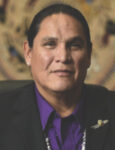
In February, I traveled to Tucson to meet with the leadership of the Casino Del Sol and its owners, the Pascua Yaqui tribe, for a story we’re doing in our Casino Design magazine, which comes out in June. In this feature, we’ll be trying to describe a tribe in the midst of a well-thought-out development.
And that got me to thinking about tribal development and exactly what could be described as “well-thought-out.”
While I was at Casino Del Sol, I had the opportunity to sit down with Chairman Peter Yucupicio and Vice Chairman Robert Valencia, who had previously been the chairman. Whenever I meet tribal leaders in such an informal setting, I sometimes ask them to describe the conditions in the tribal community before gaming was approved.
Invariably, I get stories of deprivation and hardships, and this time it was no different. Chairman Yucupicio told me that he could remember when electricity was introduced to his village, and Vice Chairman Valencia explained how scarce water was in those days. Since the Pascua Yaqui reservation is in the heart of the Sonora desert in southern Arizona, those problems go way beyond the “quality of life” issues that concern us today.
Because I was a little Irish boy born in Brooklyn who grew up in the suburbs, it’s hard to imagine life like that. And because both Yucupicio and Valencia appear to be younger than me, it’s quite shocking to me that there were (and undoubtedly still are) tribes that were forced to live such a meager existence in my lifetime.
That’s why trying to evaluate a “well-thought-out” development opportunity in that context is so difficult.
For the Pascua Yaqui, it was just the way they live their lives. Even when gaming was approved and the first small casino opened, it didn’t immediately transform the community. Yes, it created revenue in amounts the tribe had never seen before. But tribal leaders directed that revenue to developing a community center, a fire house, police headquarters, clinics and programs designed to improve that quality of life that was finally being delivered to tribal members.
But to grow the tribal economy, a decision was made to invest in tourism, and to build a second, slightly larger casino and master-plan a resort that would become a destination resort in southern Arizona. And that’s just what they’ve done. You can read how it was accomplished in Casino Design, but other tribes didn’t always follow that step-by-step blueprint.
Some tribes believed that it was necessary to build quickly and boldly. Start with a temporary casino and immediately build a full-scale resort, with money borrowed from more-than-willing banks and other institutions. While in retrospect, those decisions may not have been wise, if the economy hadn’t cratered in 2007, those tribes may have become some of the most successful in Indian Country.
And those decisions shouldn’t be judged harshly because of the circumstances the tribes endured prior to gaming. When the money started rolling in, the tribes just wanted it to continue and increase for the welfare of the tribal members. It was almost inconceivable that the economy could go so wrong so quickly, so when it did, while it was unforeseen and unfortunate, it certainly was not done without the good of the tribal members in mind.
But now that the times have changed, the economy has shifted and expectations are lowered, tribes that want to expand need to consider the size and scope of such an expansion. Or even if it’s just a renovation, there needs to be some understanding of what will work in this new economic reality.
And when doing those evaluations, tribes would be remiss not to consider economic diversification beyond gaming. Yes, it’s easier said than done, but there is help at the federal, state and even tribal levels.
So while tribal government casinos are the best story in the gaming industry, we all want to be able to sustain and grow the tribal economies in any way possible to preserve for the future all that our ancestors have struggled to provide us.


















